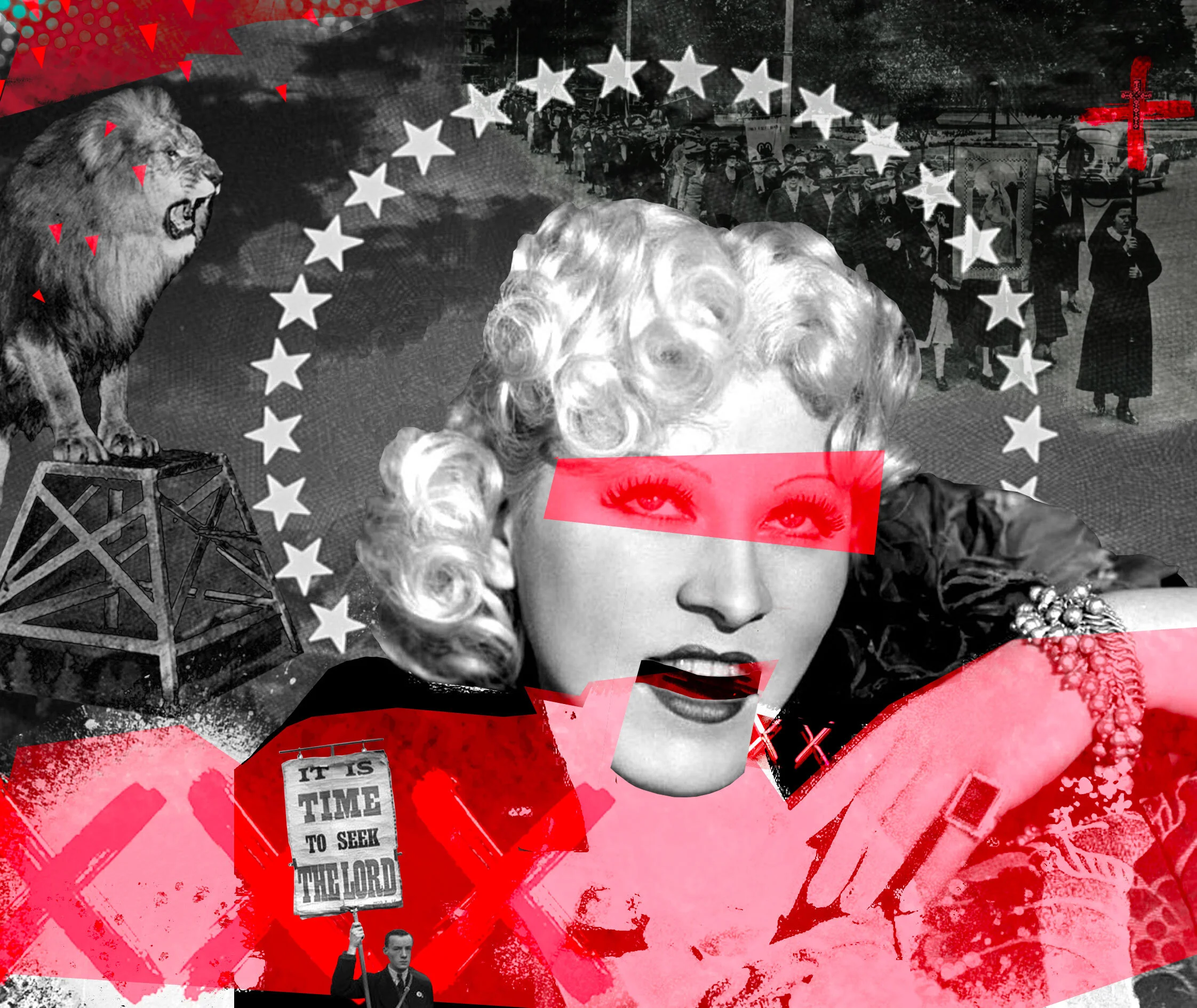Mae West
Some people are famous for 15 minutes, others are famous to 15 people but it’s only a chosen few who get to be legends of the Silver Screen. Each month, Jo Mama selects a star and celebrates their life and work. This month: Mae West. Illustration by Leonie Woods.
People say Mae West was, “126 pounds of pure fun” and that she purred rather than spoke. On You Tube you can see an interview she did with Dick Cavette in 1976 where her witty one-liners come thick and fast. She tells Dick that, “It's better to be looked over than over looked,” and “I always keep a diary and one day it will keep me” and “Too much of a good thing can be wonderful.”
In the documentary, Mae West and The Men Who Knew Her, Dom DeLuise observes that the way Mae walked, the way she talked, the way she sang and the way she danced made sex fun and changed show business forever. Her other famous fans included The Beatles and Salvador Dali and some say her hourglass figure inspired the designers of the Coca-Cola bottle.
Mae West was born in a working-class part of Brooklyn in August, 1893 and lived till 1980. She was just seven years old when she first appeared on stage. By the age of 18 she began writing and producing her own plays. Audiences at the time were not ready for plays about homosexuality and sex workers or female actors dressed as men. A production of her play Sex was stopped by the police and Mae West was fined $500 and put in prison. In court the Judge had asked West: “Are you showing contempt for this court?” West replied: “I'm doing best to hide it”. The catchphrases of Mae West and the way she delivered them made her a huge star. By the 1930s attitudes had changed and West was now celebrated for being “splendidly vulgar”.
No one denies that Mae West was the saviour of Paramount Pictures. The company were about to go bust when she signed with them in 1932 and her film, Diamond Lil made $2m for them in just a couple of months. West wrote nine of the 13 films in which she starred. That famous line from 1933s She Done Him Wrong is actually, “Why don’t you come up sometime and see me?” but for some reason her impersonators always slightly misquote her. By 1935, West was the highest-paid star in Hollywood — and the second highest-paid person in the United States. The first; newspaper tycoon William Randolph Hearst.
All of the eight films West made with Paramount are fantastic. Maybe the best of them is, I’m No Angel in which she plays a lion tamer and features famous lines such as; “Well, it’s not the men in your life that counts, it’s the life in your men.” The film also features the screen debut of Carey Grant who Mae discovered in a car park. She heard him ask someone, “How do you do?” and knew he’d be perfect for the film. Her collaboration with W.C.Fields in 1940, My Little Chickadee (Universal Pictures) was a good movie rather than a great one. Empire magazine believes it’s a three star film. Some say there was a problem with the way both stars insisted on writing their own lines and that there was more competition taking place than there was co-operation. Others say the problem was more to do with the fact W.C. Fields couldn’t stay off the sauce. Her films post My Little Chickadee are probably best avoided. The last great thing she did was record a brilliant cover of Jim Morrison’s song, Light My Fire. West was a brilliant lyricist and always hired the very best musicians to collaborate with such as Duke Ellington. Mae West was a sexual icon to a generation and was a comic genius.
Jo Mama



